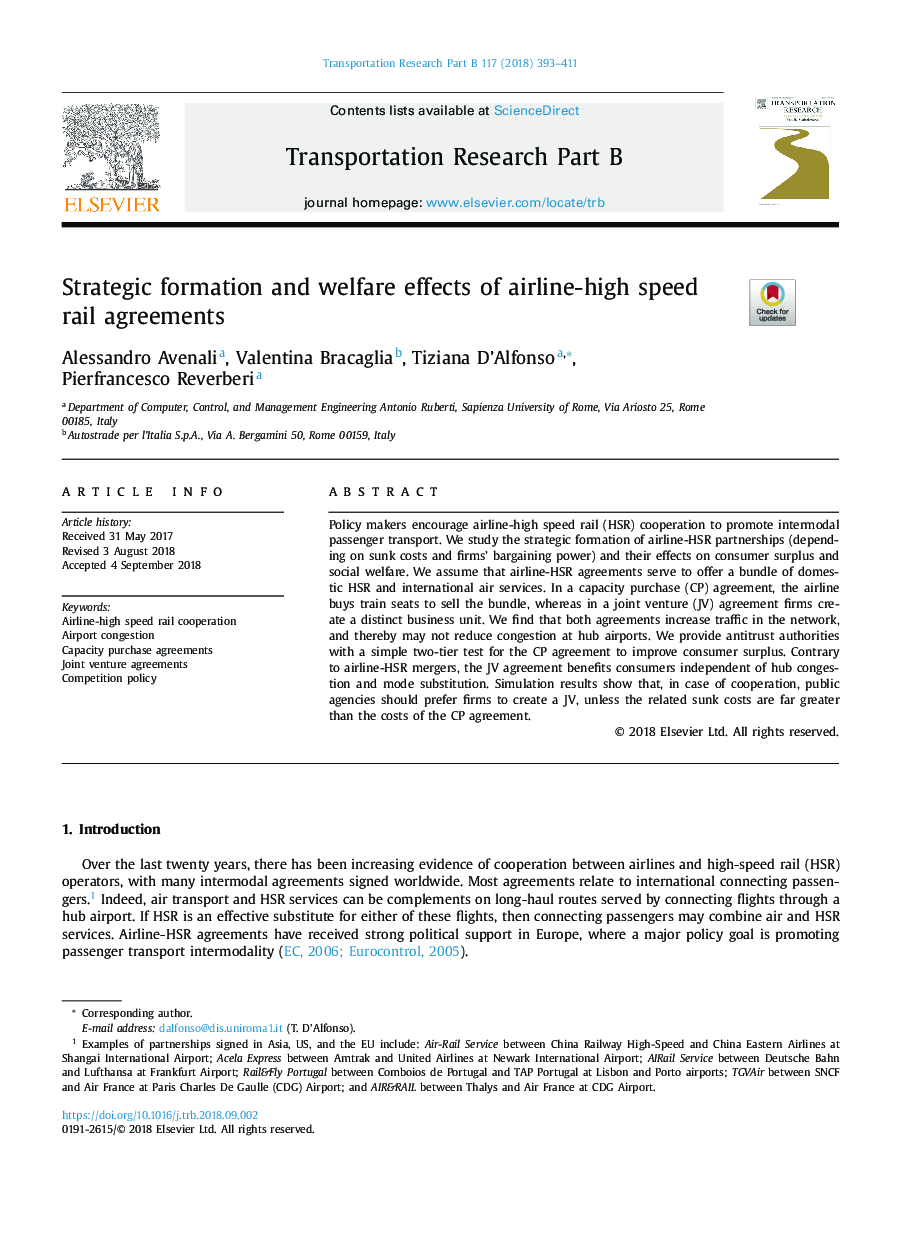| Article ID | Journal | Published Year | Pages | File Type |
|---|---|---|---|---|
| 11031282 | Transportation Research Part B: Methodological | 2018 | 19 Pages |
Abstract
Policy makers encourage airline-high speed rail (HSR) cooperation to promote intermodal passenger transport. We study the strategic formation of airline-HSR partnerships (depending on sunk costs and firms' bargaining power) and their effects on consumer surplus and social welfare. We assume that airline-HSR agreements serve to offer a bundle of domestic HSR and international air services. In a capacity purchase (CP) agreement, the airline buys train seats to sell the bundle, whereas in a joint venture (JV) agreement firms create a distinct business unit. We find that both agreements increase traffic in the network, and thereby may not reduce congestion at hub airports. We provide antitrust authorities with a simple two-tier test for the CP agreement to improve consumer surplus. Contrary to airline-HSR mergers, the JV agreement benefits consumers independent of hub congestion and mode substitution. Simulation results show that, in case of cooperation, public agencies should prefer firms to create a JV, unless the related sunk costs are far greater than the costs of the CP agreement.
Keywords
Related Topics
Social Sciences and Humanities
Decision Sciences
Management Science and Operations Research
Authors
Alessandro Avenali, Valentina Bracaglia, Tiziana D'Alfonso, Pierfrancesco Reverberi,
